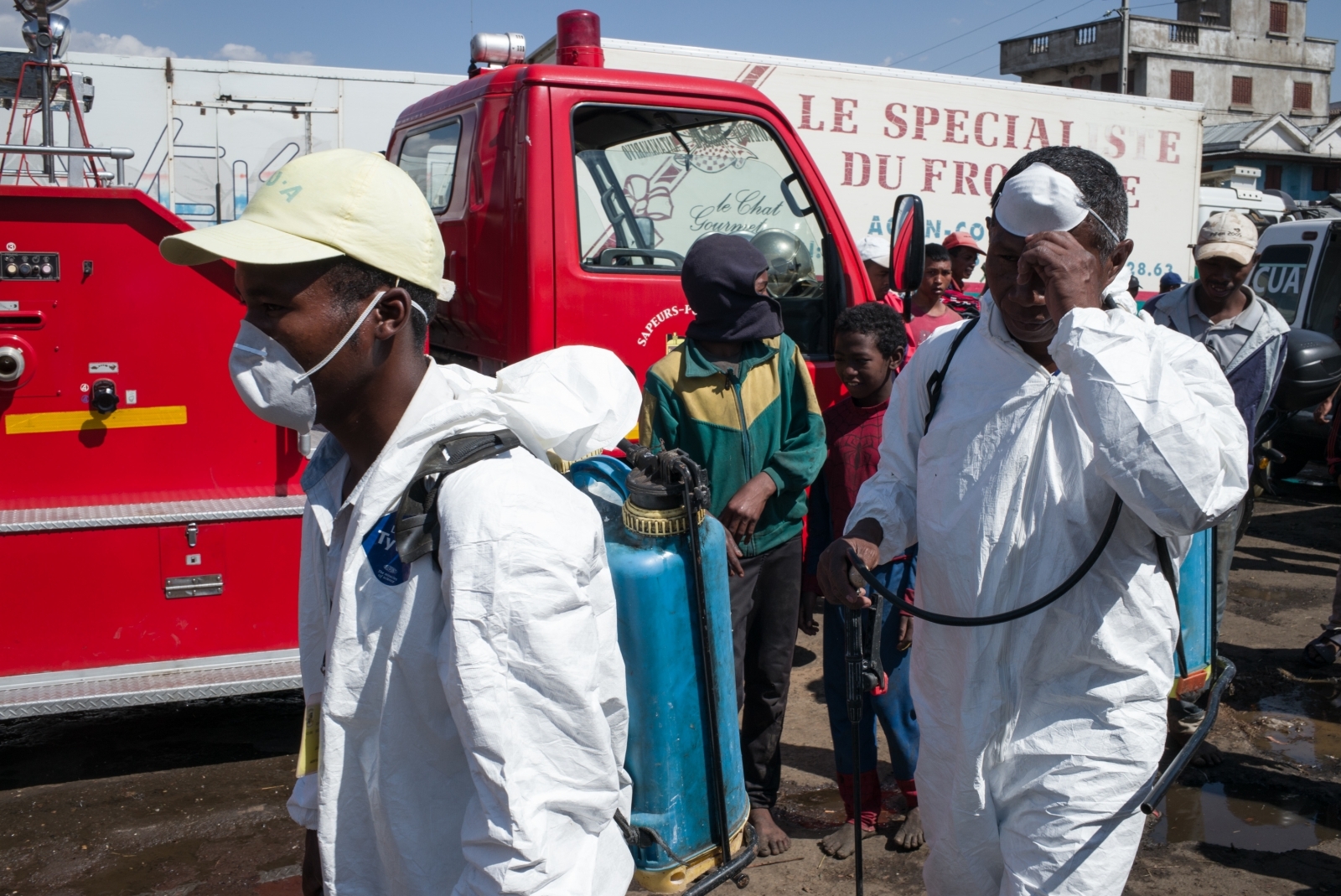South Africa at high risk of 'Black Death' plague outbreak spreading from Madagascar


KEY POINTS
- World Health Organisation says the African plague epidemic could get worse.
- Nine countries including South Africa deemed "high risk" by WHO.
An outbreak of the plague, or Black Death, in Madagascar has claimed more than 1,000 lives and may spread to nine neighbouring countries including South Africa, the World Health Organisation (WHO) has warned.
On 23 October, WHO announced that a plague epidemic had killed 124 people in Madagascar – a large island off the east of the African mainland – and infected a further 1,068. Two-thirds of cases were pneumonic – the much deadlier, airborne form of the infectious disease.
The organisation has also identified nine neighbouring countries with strong trade and transport links to Madagascar as being at "high risk for plague outbreak".
They are; Comoros, Ethiopia, Kenya, Mauritius, Mozambique, Reunion, Seychelles, South Africa, and Tanzania.
Madagascan and international health authorities have only been able to track down a third of the people who have been in contact with those infected sparking fears that the epidemic will worsen and spread to other parts of Africa.
Within a day of contracting the disease, patients develop severe fever-like symptoms, which can be treated with antibiotics. But if the symptoms go untreated for a further day, sufferers are likely to die.
"Untreated pneumonic plague can be rapidly fatal, so early diagnosis and treatment is essential for survival and reduction of complications," the WHO advises.
"Antibiotics and supportive therapy are effective against plague if patients are diagnosed in time. Pneumonic plague can be fatal within 18 to 24 hours of disease onset if left untreated."
The plague was a scourge of Europe in the Middle Ages and still surfaces in parts of the developing world regularly, although there has not been a pandemic since the 19th century.
There are minor outbreaks in Madagascar at the same period every year although the current plague season began a month earlier than usual and is already significantly more deadly.
South Africa and other at-risk nations are preparing for the worst by stockpiling antibiotics and medical equipment as well as training citizens in plague detection. The WHO has implemented a raft of measures to help keep the plague away from cities like Cape Town and Johannesburg.
"These measures include exit screening of departing passengers at the International Airport through temperature screening, interview with and provision of treatment to symptomatic passengers and prophylactic antibiotics to passengers at risk," it said.





















